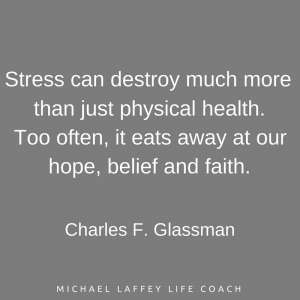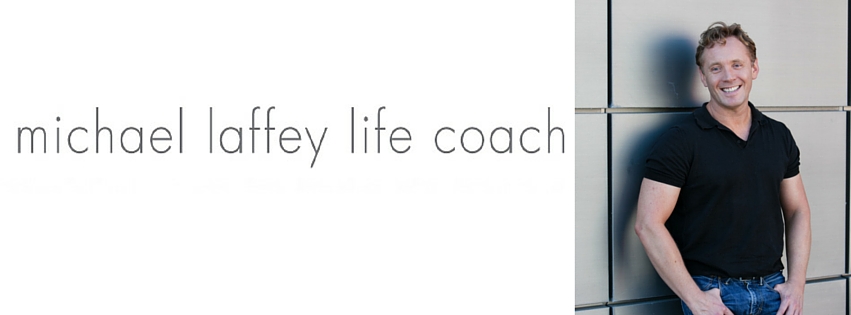The Science of Stress | Talk given by The Royal Institution, London | 26 October, 2016

Stress | The Modern Day Story of Eggs and Omelettes
The Science of Stress
Earlier this week I attended a talk at The Royal Institution in London about the Science of Stress.
The talk was given by three amazing speakers and hosted by Vincent Walsh. Each one an expert in neuroscience.
The speakers were each given fifteen minutes to talk about stress from within their area of expertise.
The talk will be posted on The Royal Institution Youtube channel over the coming months. When it goes up, I’ll definitely share it.
What follows below are the notes I scribbled during the talk and at the end of this post you’ll find my take-aways.
*****
Speaker 1: Joe Herbert is interested in the role of the brain in adaptive responses, with particular reference to the reciprocal interaction between hormones and the brain. He is a Professor at the Department of Clinical Neurosciences at the University of Cambridge.
What is Stress?
- Stress can be physical, personal or social
- Stress is an internal response to an event
Impacts of Stress
- Stress can be felt physiologically, emotionally or cognitively
- Joe referred to stress from an engineering perspective as “strain” and “stress load”
- The result of stress can be adaptation, or not. Coping or failing to cope. A cost to benefit ratio of outcomes
Life Events Triggering Stress
- Life events can be acute, chronic or acute on chronic
Depression Following Stressful Life Events
- Often depression is preceded by a significant life event whereas life events are rarely preceded by depression
- Circa 30% of people suffer from depression about 20 weeks after a life event, such as death of a partner
How the Brain Reacts to a Stressful Event
A chain of events takes place in response to stress:
- Pre Frontal Cortex – the executive functioning centre. How do I cope? What can be done about this situation?
- Amygdala – the emotional centre. Danger or pleasure zone
- Hippocampus – Reponse and adaptation centre
- Pituitary Gland – send signal to the adrenal gland
- Adrenal Gland – releases Cortisol
Cortisol:
- is essential for life function
- has a daily rhythm (higher in the morning and declines over the day)
- levels are generally higher in women than men
- level rise as a direct result of stress
- higher levels of cortisol inhibit formation of new neurones in the brain
- higher levels of cortisol reinforce aversive memories
- higher levels of cortisol are pro-inflammatory within the brain
- higher levels of cortisol can predispose depression
Epigenetics
- A growing field investigating inter-generational transfer of DNA
- Joe referred to the long term consequences of childhood adversity (see next speaker)
- Adversity causes a stress response at the DNA level (methylation). This can lead to lifelong changes within the child which in turn could be passed on to the next generation through altered DNA
Depression by Gender
- 1 in 4 women will suffer with depression or mental illness
- 1 in 10 men will suffer with depression or mental illness
Stress Factors Contributing to Depression
- Genes / Epigenetics / inherited traits
- Childhood to teenage years adversity
- The combination of genes and early year adversity
- Life events triggering a stress response
- Gender variance stress responses: social and/or hormonal
*****
Speaker 2: Julie Turner-Cobb is Professor of Psychology at Bournemouth University. She researches the effects of psychosocial factors, particularly stress, coping and social support, on endocrine functioning across a range of acute and chronic health conditions in adults and children.
Childhood Stress & Healthy Lifespans: Is Stress Good for You?
There are four key stressors
- Time stress – time or the lack therof
- Anticipatory stress – concerning the future
- Situational stress – emergencies, conflicts, death, redundancy, divorce, etc
- Encounter stress – interacting with groups or people
Compound Stress
Stress is akin to a mosaic; overall, composed of many parts. This can also be referred to as compound stress- eg, “it doesn’t rain but it pours”
Vulnerability v Resilience – The Orchid-Dandelion Hypothesis
Where we sit on the scale of how vulnerable or resilient we feel in certain situations may be inherited traits – whether that be psychosocial or through genetic code (epigenetics)
Good Parenting, Supportive Environments | A Naturalistic Study
Referring to an experiment looking at cortisol levels in children changing nursery school.
- Cortisol levels rose as a result to the stress of changing schools
- Cortisol levels rose higher and sloped off better in children with more support
- Susceptibility to colds/flu was lower in children where they showed this higher cortisol rise and greater slope off
Adaptability
- The Concept of Allostasis – maintaining our stability during change
- Allostatic Load – accumulated (lifelong) stress and the costs borne in managing it
Early Life Experiences Influenced by Allostasis
- Development of the immune/endocrine systems
- Cognitive learning
- Language development
- Attachment
- Social learning and interaction
*****
Speaker 3: Shane O’Mara is Professor of Experimental Brain Research in Trinity College Dublin. His research focuses on the relations between cognition, synaptic plasticity and behaviour, in the context of brain aging and depression.
The Neuroscience of Interrogation
Shane’s talk focused on extreme stress employed during interrogation or torture. Often referred to as “white torture” as extreme stress techniques leave no marks on the victim. Tortures referenced were waterboarding, air deprivation and sleep deprivation.
Shane was quick to remark that there is no evidence to prove that extracting information from people through torture is ever reliable.
Quoting Napoleon: “The barbarous custom of having men beaten who are suspected of having important secrets to reveal must be abolished. It has always been recognized that this way of interrogating men, by putting them to torture, produces nothing worthwhile. The poor wretches say anything that comes into their mind and what they think the interrogator wishes to know.”
Why is forced information unreliable?
Medial Temporal Lobe
- The area of the brain responsible for storing facts
- Extreme stresses over a prolonged period of time deactivate the medial temporal lobe, which is why, under torture, people may agree to things they’ve never done
Amygdala – The Pain or Pleasure Centre
- Extreme stress heightens activity in the amydala
- Conversely, extreme stress lowers pre frontal cortex function (high level reasoning, decision making)
- Individual becomes hyper vigilant to otherwise innocuous stressors
Language and Interrogation
Referring to “less amateur” torturers who are often older, wiser and less impulsive. They have the ability to extract information in a more coercive way; gaining trust and demonstrating compassion through small acts of kindness during the process
A detainee is 40% more likely to self-disclose personal information to a third party if allowed to do so freely rather than under duress; freely sharing personal information triggers a pleasure reward (relatively in this case!) for the person who is doing the disclosing. It turns out that we like talking about ourselves whatever the situation!
*****
Stress Management: What the Speakers Suggested
- Exercise
- Sleep
- Social Support
- Your attitude/approach to it
- CBT or Mindfulness as cognitive tools in managing our response levels to stressful situations
*****
My Take Aways
The Cost of Stress
There is a cost to managing stress whether that’s neurological or physical or both.
Stress operates two forms of payment; now and later.
We often manage our way though a stressful situation in the short term. Once the stress experience has passed it’s not unusual to feel tired, wiped out or ill. These are all symptoms of the drain on our immune system.
Extrapolate that into longer term stress. Long term physical and mental health issues and epigenetics and you start to build a picture of a cost-to-benefit requirement.
Stress is VR (Virtual Reality)
Our brains cannot determine real from imagined stresses. It responds to both in the same way – eg rumination or imagined situations are just as load bearing on our systems as a real world stressful situation
Management and Support
There are times when we would do better to step back and first consider that we’re not always the super hero we think we are or should be.
Super heroes tend to swoop in when we need to fight the good fight. Life would be a little strange and somewhat disproportionate if super heroes were needed to manage car park queues.
Sometimes I step back even further and wonder if we’re still a bag of primordial soup reacting to external stimuli with internal chemical reactions as a result.
However stress appears in our lives, we know that exposure to it enables resilience.
Our evolutionary stress management depends a lot on:
- Knowing when stress is relevant – good old fight or flight and short-term – an exam, a speech, a deadline, a competition
- Recognising when the purpose of a stress has passed. Ongoing stress heightens our fright response to otherwise innocuous situations. Learn to scale down the stress levels and scale up perspective
- Harnessing the stress management tools we know and are told constantly will work to our benefit (exercise, sleep, time out, belief and support)
- Our social and support networks. If you consider the oxytocin element in McGonigal’s talk (below), plus the reward kick we get when we talk about ourselves freely, as referenced by Shane O’Mara, then the purpose, reward and management of stress transitions from a mosaic of compounded stresses to a scaffold of relevance and support

*****
Related
How To Make Stress Your Friend – Kelly McGonigal – TEDtalk (14:30)
From the perspective of recognising when stress could be beneficial and how social support is a key part of reducing its harmful effects.
The “Holding a Glass of Water” Analogy – A Lesson in Load Bearing (1:15)


